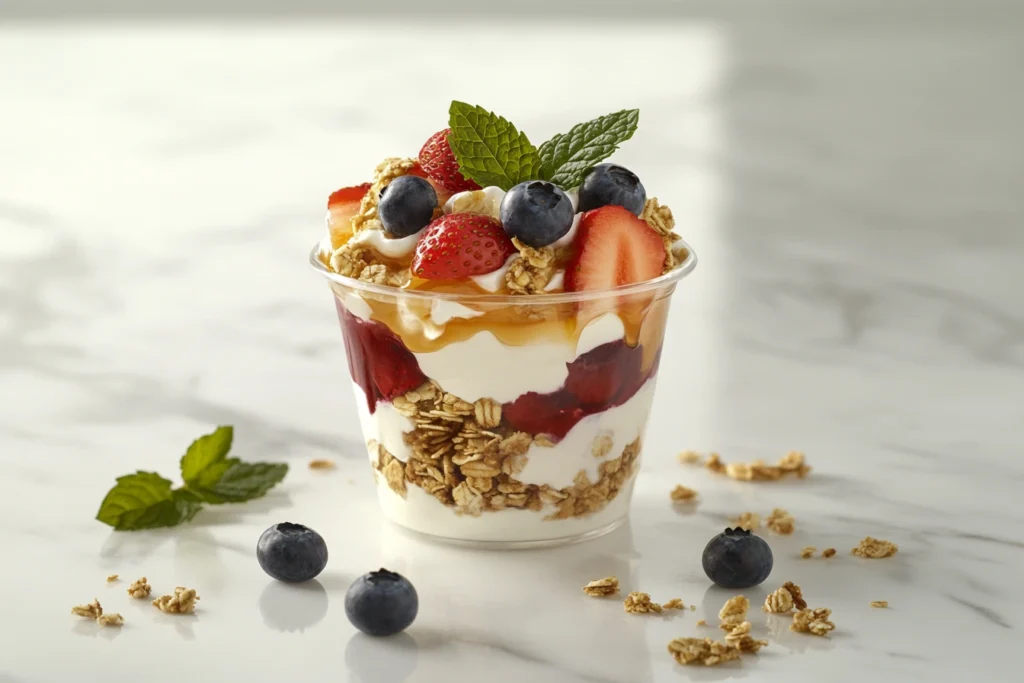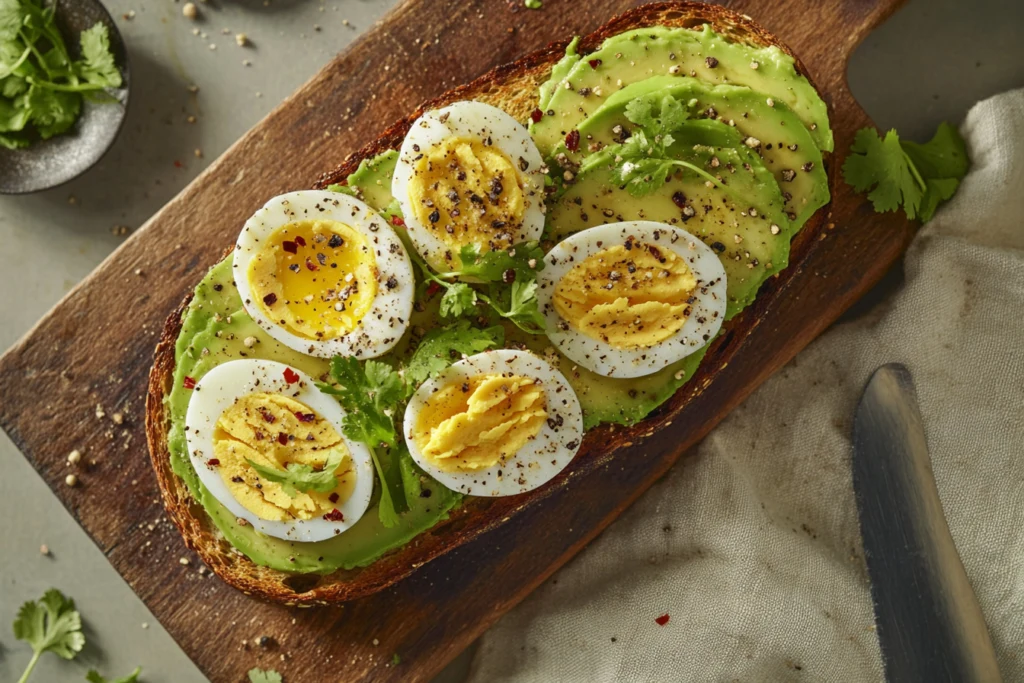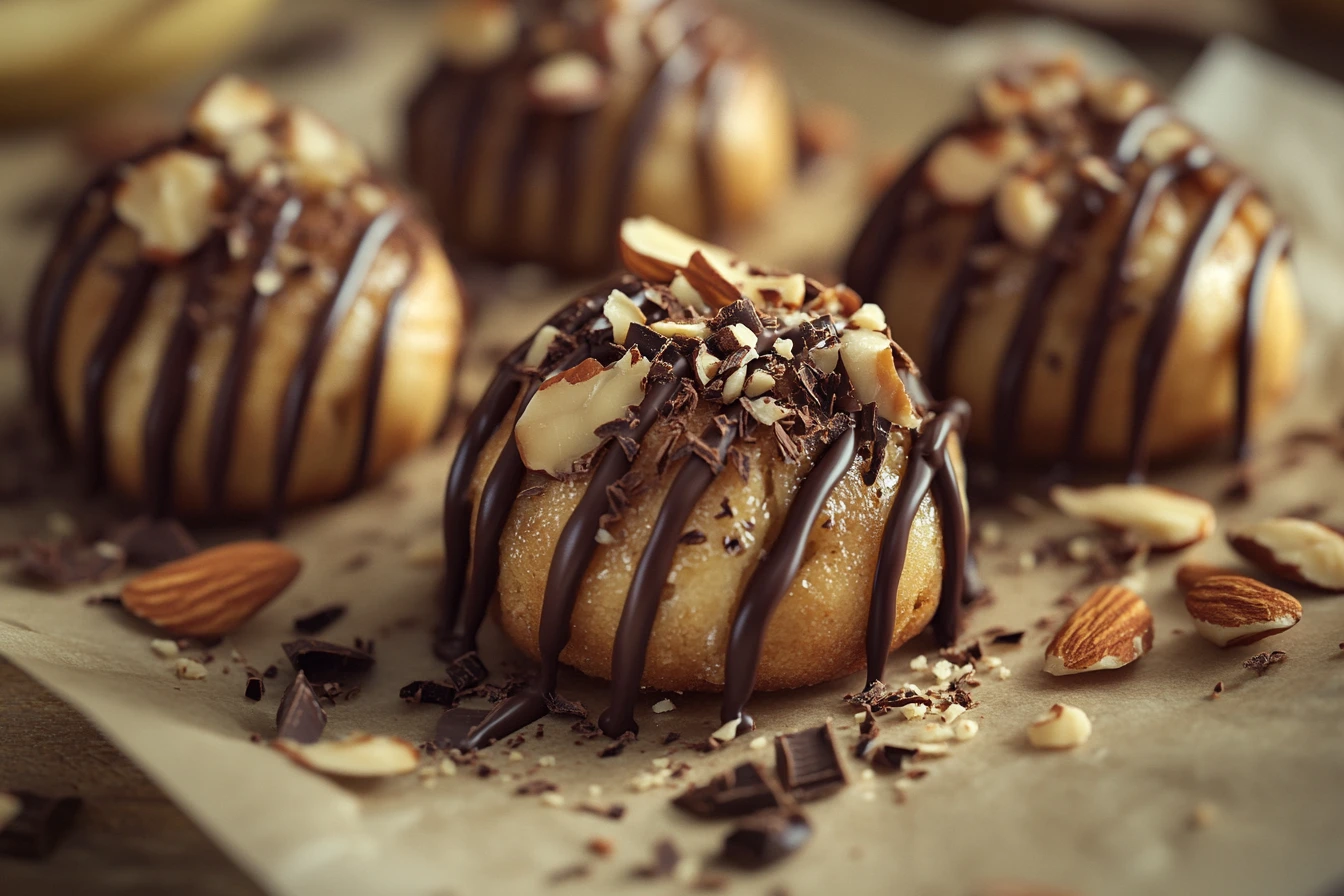1. Introduction to Late Night Food
Late-night food has become an integral part of modern lifestyles, catering to individuals with busy schedules, night shifts, or cravings after hours. Whether it’s a quick snack after a long day or a light meal before bed, choosing the right foods can make a significant difference in maintaining health and wellness.
While late-night eating is often associated with weight gain and digestive issues, the key lies in portion control, nutrient balance, and smart choices. With the right approach, late-night food can be both healthy and satisfying without impacting sleep quality or digestion.
This article explores the best late-night food options, provides recipes, and offers tips for healthy eating at night. By the end, readers will know how to curb cravings, avoid unhealthy choices, and prepare quick and nutritious meals for any nighttime hunger pangs.
2. Why Do People Eat Late at Night?
Late-night eating has become increasingly common due to modern work patterns, social habits, and emotional triggers. Understanding the reasons behind this behavior can help individuals make healthier choices and minimize risks associated with eating at odd hours.
2.1 Common Reasons for Late-Night Eating
1. Busy Schedules and Irregular Hours
Many people work late shifts or have demanding jobs, leaving them with limited time for meals during the day. As a result, late-night food often becomes a necessity rather than a luxury.
2. Stress and Emotional Eating
Stress often triggers emotional eating, especially during the evening hours when individuals unwind and seek comfort foods. Foods high in carbohydrates and sugar may temporarily boost serotonin levels, offering a sense of relief.
3. Cravings and Hunger Signals
Hormonal changes, especially ghrelin and leptin imbalances, can lead to hunger cravings at night. Inadequate daytime nutrition may also contribute to nighttime snacking.
2.2 Is Eating Late at Night Bad for You?
Potential Concerns:
- Eating heavy or high-calorie meals late at night may slow digestion and lead to weight gain.
- Spicy or fried foods can cause acid reflux and disrupt sleep patterns.
- High sugar intake may lead to blood sugar spikes, affecting energy levels and insulin sensitivity.
How to Avoid Risks:
- Opt for low-calorie, high-protein foods that are easy to digest.
- Eat at least 1–2 hours before bedtime to allow proper digestion.
- Focus on foods rich in magnesium and melatonin, which promote better sleep quality.
3. Healthy Late Night Food Options
Choosing healthy late-night food can help satisfy hunger cravings without compromising nutrition or sleep quality. Opting for nutrient-dense snacks instead of high-fat or sugary treats ensures you stay full longer and avoid unnecessary calorie spikes.
3.1 Low-Calorie Snacks
For those looking to keep calorie counts low, light snacks are the best option.

Examples of Low-Calorie Snacks:
- Greek Yogurt with Berries: Provides probiotics for gut health and antioxidants. (Learn more about healthy late-night snacks in this Healthline guide.)
- Apple Slices with Peanut Butter: Combines fiber and healthy fats for sustained energy.
- Carrot and Cucumber Sticks with Hummus: Low in calories but rich in nutrients.
- Air-Popped Popcorn: A low-calorie snack that satisfies cravings without guilt.
Quick Tip: Avoid packaged snacks that are high in salt or preservatives and choose fresh, whole ingredients instead.
3.2 High-Protein Options
Protein-rich foods keep you full longer and support muscle repair during sleep.
Examples of High-Protein Snacks:
- Boiled Eggs: Packed with protein and essential vitamins.
- Turkey or Chicken Slices: Lean proteins that promote satiety.
- Cottage Cheese with Pineapple: Rich in casein protein, which helps muscle recovery.
- Protein Smoothie: Made with banana, almond milk, and whey protein for a quick fix.
Why Protein Matters:
Protein slows digestion, stabilizes blood sugar, and reduces cravings, making it an ideal choice for nighttime snacks.
3.3 Foods That Promote Sleep
Certain foods contain natural compounds like melatonin, tryptophan, and magnesium, which help relax the body and improve sleep quality.
Best Foods for Better Sleep:
- Bananas: Rich in magnesium and potassium, which help relax muscles.
- Almonds and Walnuts: Contain melatonin and healthy fats for restful sleep.
- Oatmeal: A source of complex carbs and melatonin that supports calmness.
- Chamomile Tea: Reduces stress levels and promotes relaxation.
Quick Tip: Combine sleep-inducing foods with protein or fiber for balanced nutrition and longer satiety.
3.4 Quick and Healthy Meal Ideas
If you need more than just a snack, a quick meal can be prepared using simple ingredients.
Ideas for Healthy Late-Night Meals:
- Vegetable Stir-Fry with Quinoa: Light, high in fiber, and packed with protein.
- Avocado Toast with Egg: Combines healthy fats and proteins for sustained energy.
- Chicken Wraps with Veggies: Low-carb and filled with lean protein.
- Smoothie Bowls: Blend fruits, spinach, chia seeds, and yogurt for a nutrient boost.
4. Unhealthy Late Night Food Choices and Their Impact
While late night food can satisfy cravings, poor choices can lead to weight gain, sleep disturbances, and digestive problems. Identifying unhealthy options and understanding their effects is essential for making smarter decisions.
4.1 Common Unhealthy Options
1. Fast Food and Fried Snacks
- Burgers, fries, and pizza are calorie-dense and often high in fat, leading to slower digestion and bloating.
- Deep-fried foods may trigger acid reflux, causing discomfort during sleep.
2. Sugary Treats and Desserts
- Ice creams, cakes, and cookies provide a quick sugar rush, but they can result in blood sugar crashes, making you feel tired and restless.
- High sugar intake at night increases the risk of weight gain and insulin resistance.
3. Processed Snacks and Chips
- Chips and pretzels are loaded with salt and unhealthy fats, contributing to water retention and dehydration.
- They provide empty calories, offering little nutritional value.
4.2 Effects on Health
Consuming unhealthy foods late at night affects both short-term comfort and long-term health.
1. Weight Gain
- Calorie-heavy foods eaten late at night are less likely to be burned off, leading to fat storage.
- Nighttime snacking often lacks portion control, increasing total calorie intake.
2. Digestive Issues
- Eating fatty and spicy foods can cause acid reflux and heartburn, disrupting sleep patterns.
- Large meals require longer digestion, making it harder for the body to relax before bedtime.
3. Blood Sugar Spikes
- Sugary snacks lead to rapid insulin release, which can cause fluctuations in energy levels and mood swings.
- Over time, these spikes may increase the risk of diabetes and metabolic disorders.
4. Poor Sleep Quality
- Foods high in caffeine or spices may stimulate the nervous system, making it harder to fall asleep.
- Heavy meals late at night can trigger indigestion, affecting the REM sleep cycle.
4.3 Strategies to Avoid Unhealthy Options
1. Meal Planning: Prepare healthy snacks in advance to prevent impulsive eating.
2. Healthy Substitutes: Replace chips with air-popped popcorn or fruits and nuts.
3. Mindful Eating: Pay attention to hunger signals and avoid overeating due to boredom.
4. Hydration: Drink water or herbal teas before eating to rule out thirst disguised as hunger.
5. Tips for Choosing Healthy Late Night Food
Making smart choices when it comes to late night food can prevent weight gain, improve digestion, and promote better sleep quality. Follow these practical tips to create nutritious and satisfying options that keep you healthy and energized.
5.1 Plan Ahead for Late Night Meals
Meal prepping is one of the most effective strategies to avoid reaching for unhealthy snacks at night.
Steps to Plan Ahead:
- Batch Prepare Snacks: Stock up on pre-cut veggies, boiled eggs, and hummus in the refrigerator.
- Keep Healthy Ingredients Handy: Store nuts, seeds, and Greek yogurt for quick fixes.
- Label Portions: Divide snacks into small containers to prevent overeating.
Tip: A well-stocked kitchen eliminates the temptation for fast food or junk snacks when cravings hit late at night.
5.2 Balance Macronutrients for Sustained Energy
A balanced meal that includes proteins, healthy fats, and complex carbs provides long-lasting energy and keeps hunger in check.
How to Balance Macronutrients:
- Protein Sources: Eggs, chicken breast, or Greek yogurt.
- Healthy Fats: Avocados, nuts, and olive oil.
- Complex Carbohydrates: Whole grains, quinoa, or oats.
Example Meal:
- Avocado toast with boiled eggs and a sprinkle of chia seeds delivers protein, fiber, and healthy fats.
5.3 Focus on Hydration Before Snacking
Sometimes thirst can be mistaken for hunger, especially late at night. Staying hydrated helps control false hunger cues and reduces the urge to overeat.
Best Drinks for Hydration:
- Herbal Teas: Chamomile and peppermint promote relaxation.
- Warm Water with Lemon: Supports digestion and detoxification.
- Coconut Water: Replenishes electrolytes after a long day.
Tip: Drink a glass of water first and wait 10 minutes before deciding whether you’re truly hungry.
5.4 Portion Control to Avoid Overeating
Portion control is key to managing calorie intake at night. Smaller servings can help satisfy cravings without overloading calories. (For more tips on portion sizes and late-night eating habits, check out this WebMD article.)
Portion Control Tips:
- Use small plates or bowls instead of large dinner plates.
- Measure portions in advance to avoid mindless eating.
- Choose single-serving packages or pre-cut portions for snack-sized servings.
Example Portion Sizes for Snacks:
- 1 cup of berries with Greek yogurt.
- 1 boiled egg with avocado slices.
- A handful of almonds (about 10–12 pieces).
5.5 Be Mindful of Timing and Meal Size
Eating too close to bedtime can lead to discomfort and restless sleep. It’s recommended to have lighter meals at least 1–2 hours before bed to allow proper digestion.
Ideal Timing:
- If dinner was early, add a small snack later in the evening.
- Avoid heavy meals after 10 PM, and choose easily digestible options like soups or salads.
6. Late Night Food Recipes – Quick and Healthy Ideas
Whether you need a light snack or a small meal to curb hunger before bed, these easy recipes offer nutrition and flavor without the guilt.
6.1 Quick and Healthy Snacks
1. Avocado Toast with Egg

- Ingredients:
- 1 slice of whole-grain bread
- ½ avocado, mashed
- 1 boiled egg, sliced
- Pinch of sea salt and pepper
- Instructions:
- Toast the bread until crispy.
- Spread the mashed avocado evenly.
- Top with egg slices and season with salt and pepper.
Why It Works:
This snack provides healthy fats, fiber, and protein, keeping you satisfied longer.
2. Greek Yogurt Parfait
- Ingredients:
- 1 cup of Greek yogurt
- ¼ cup of granola
- ½ cup of berries (blueberries, strawberries, etc.)
- 1 teaspoon of honey
- Instructions:
- Layer the yogurt, granola, and berries in a cup.
- Drizzle with honey for a touch of sweetness.
Why It Works:
Greek yogurt is high in protein, while berries provide antioxidants for better digestion and reduced inflammation.
6.2 Low-Carb Recipes
1. Egg Muffins with Spinach and Cheese
- Ingredients:
- 3 eggs
- ¼ cup spinach, chopped
- ¼ cup cheese, shredded
- Salt and pepper to taste
- Instructions:
- Preheat oven to 375°F (190°C).
- Beat eggs in a bowl and add spinach and cheese.
- Pour mixture into a muffin tin and bake for 12–15 minutes.
Why It Works:
This recipe is low in carbs and rich in protein, making it perfect for weight management.
2. Turkey Lettuce Wraps
- Ingredients:
- 2 lettuce leaves
- 3 slices of turkey breast
- 1 tablespoon of hummus
- 2 slices of tomato
- Instructions:
- Spread hummus on the lettuce leaves.
- Add turkey slices and tomato.
- Roll into wraps and secure with toothpicks.
Why It Works:
High in protein and low in carbs, this is an energy-boosting snack that’s quick to prepare.
6.3 High-Protein Meal Options
1. Grilled Chicken Salad
- Ingredients:
- 1 cup of mixed greens
- ½ cup grilled chicken breast, chopped
- ¼ cup cherry tomatoes
- 1 tablespoon olive oil
- 1 teaspoon lemon juice
- Instructions:
- Toss greens, tomatoes, and chicken in a bowl.
- Drizzle with olive oil and lemon juice. (Discover more ideas for high-protein meals in this Blackstone recipes guide.)
Why It Works:
Packed with lean protein and vitamins, this salad is light yet filling.
2. Quinoa and Vegetable Bowl
- Ingredients:
- 1 cup of cooked quinoa
- ½ cup of steamed vegetables (broccoli, carrots, etc.)
- 1 tablespoon of soy sauce
- 1 teaspoon sesame seeds
- Instructions:
- Combine quinoa and vegetables in a bowl.
- Drizzle with soy sauce and sprinkle sesame seeds.
Why It Works:
Quinoa is a complete protein, and vegetables provide fiber and vitamins, making this meal nutrient-rich and easy to digest.
6.4 Dessert Ideas Without the Guilt
1. Banana Peanut Butter Bites

- Ingredients:
- 1 banana, sliced
- 1 tablespoon peanut butter
- 1 teaspoon dark chocolate chips
- Instructions:
- Spread peanut butter between banana slices to make mini sandwiches.
- Top with dark chocolate chips and freeze for 30 minutes. (For additional sauce ideas to complement your snacks, check out this perfect burger sauce recipe.)
Why It Works:
This dessert satisfies sweet cravings while delivering fiber, protein, and healthy fats.
7. Frequently Asked Questions (FAQs)
7.1 What Is the Best Food to Eat at Night?
The best late night food options are low-calorie, protein-rich, and easy to digest. Examples include:
- Greek yogurt with berries for probiotics and antioxidants.
- Boiled eggs or turkey slices for protein to keep you full longer.
- Oatmeal with almond butter for fiber and healthy fats.
These choices help curb cravings without affecting digestion or sleep quality.
7.2 Which Is the Best Food for Night Dinner?
A balanced dinner should include protein, fiber, and healthy fats. Some great options are:
- Grilled chicken salad with olive oil dressing for lean protein.
- Vegetable stir-fry with quinoa for fiber and vitamins.
- Soup or broth-based meals for hydration and light digestion.
Opt for light meals at dinner to promote better sleep and improved metabolism.
7.3 What Should I Eat at 10 PM at Night?
If you’re hungry late at night, choose quick and healthy snacks such as:
- Avocado toast with eggs for healthy fats and protein.
- Cottage cheese with pineapple for slow-digesting protein.
- Bananas and almonds for magnesium and melatonin to improve sleep quality.
Avoid fried foods, sugary desserts, or caffeinated drinks to prevent disrupting sleep cycles.
7.4 What Is the Healthiest Late-Night Meal?
The healthiest late-night meals are those that are:
- Low in calories but high in protein and fiber.
- Easy to digest and rich in nutrients.
Examples include: - Chicken wraps with vegetables for protein and fiber.
- Quinoa bowls with roasted veggies for vitamins and minerals.
- Smoothie bowls made with yogurt, fruits, and chia seeds.
These meals help keep energy levels balanced and promote restful sleep.
8. Conclusion
Late night food doesn’t have to be unhealthy or regretful. With the right choices, it can become a nutritious and satisfying experience that supports overall health.
By focusing on high-protein snacks, low-carb options, and sleep-enhancing ingredients, you can curb cravings without negative effects on weight or digestion. Recipes like avocado toast, protein smoothies, and quinoa bowls offer easy-to-prepare solutions for late-night hunger.
Remember, portion control, hydration, and balanced nutrients are key to smart nighttime eating habits. Whether you’re finishing a long workday or enjoying a movie night, these tips and recipes ensure your late night food cravings are both healthy and satisfying.
